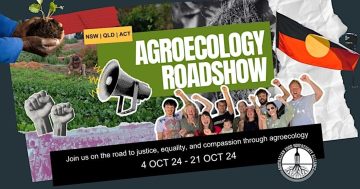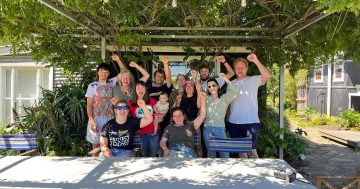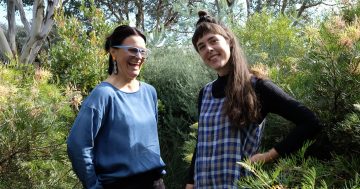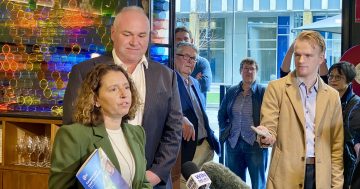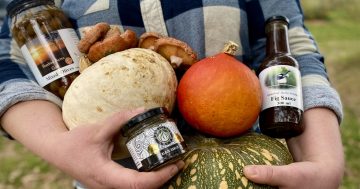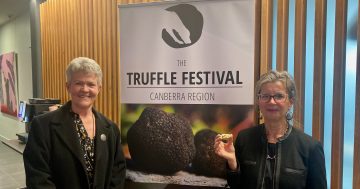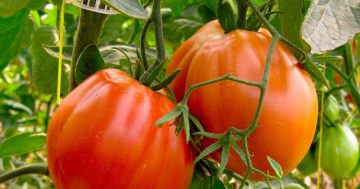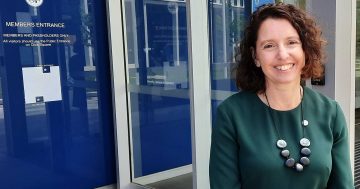
A keen supporter of her local region and its produce, Lucy Ridge puts the final touches on the Canberra cake she made and tested on her Region colleagues. Verdict: Capital. Photo: Michelle Kroll.
There’s not a lot that Lucy Ridge likes more than good tucker. Except, that is, to know exactly where it came from.
The former chef and now writer, including for Region, can’t remember a time when she didn’t love food, but more recently, the interest has moved more to the road the food has travelled to get to her kitchen and other people’s plates. She started cooking at age 15 and hasn’t looked back – except to see what is left in the fridge or vegetable garden she can use to create yet another great meal.
“I always knew I wanted to be a chef,” she said. “I did some school-based training and then trained at God’s Cafe at the ANU. I’ve also done a variety of internships [from cheese to sausage-making] to learn new skills and work with different foods.
“Part of my journey as a chef has led me to this place now – the importance of making our food more sustainable, to know exactly where it comes from, and the environmental and social impact its growth has had.”
The Canberra foodie has just been invited to write a chapter in a book produced by the Australian Food Sovereignty Alliance (AFSA) called Eating Democracy – The True Cost of What We Eat. It is the sequel to Farming Democracy. The AFSA is a farmer-led group that promotes socially just and ecologically sound food and agriculture systems that foster the democratic participation of Indigenous Australians, small producers and local communities in growing and distributing their food.
The latest book is about how everyone can reclaim their food system – and show how we all have the power to change things. The 11 authors, selected to represent a diverse range of everyday eaters, include Lucy and Ruth Gaha-Morris of Bungendore from the Southern Harvest Association, a not-for-profit, farmer-led organisation that connects producers and growers with customers.
The aim, says Lucy, is for the book to inspire its readers to think differently about their relationship to food.
In the past, she said food directly sourced from producers could be more expensive than prices at the big supermarkets, but that is rarely the case these days.
“That argument just doesn’t really hold up any more,” she said. “There are so many different producers these days, all over the place, at food markets, co-ops all over that are now part of the community so you don’t have to shop at those huge places any more.
“It’s also all about what is in season. Avocadoes just don’t grow all year round. And carrots don’t always grow in a straight line. So you eat what is in season because that’s when it tastes great.”
Lucy said people also didn’t need vast plots of land to grow what they needed. Living in the same apartment for 10 years, Lucy considers herself fortunate to have had so much time to produce what she wants to eat – and what grows best where.
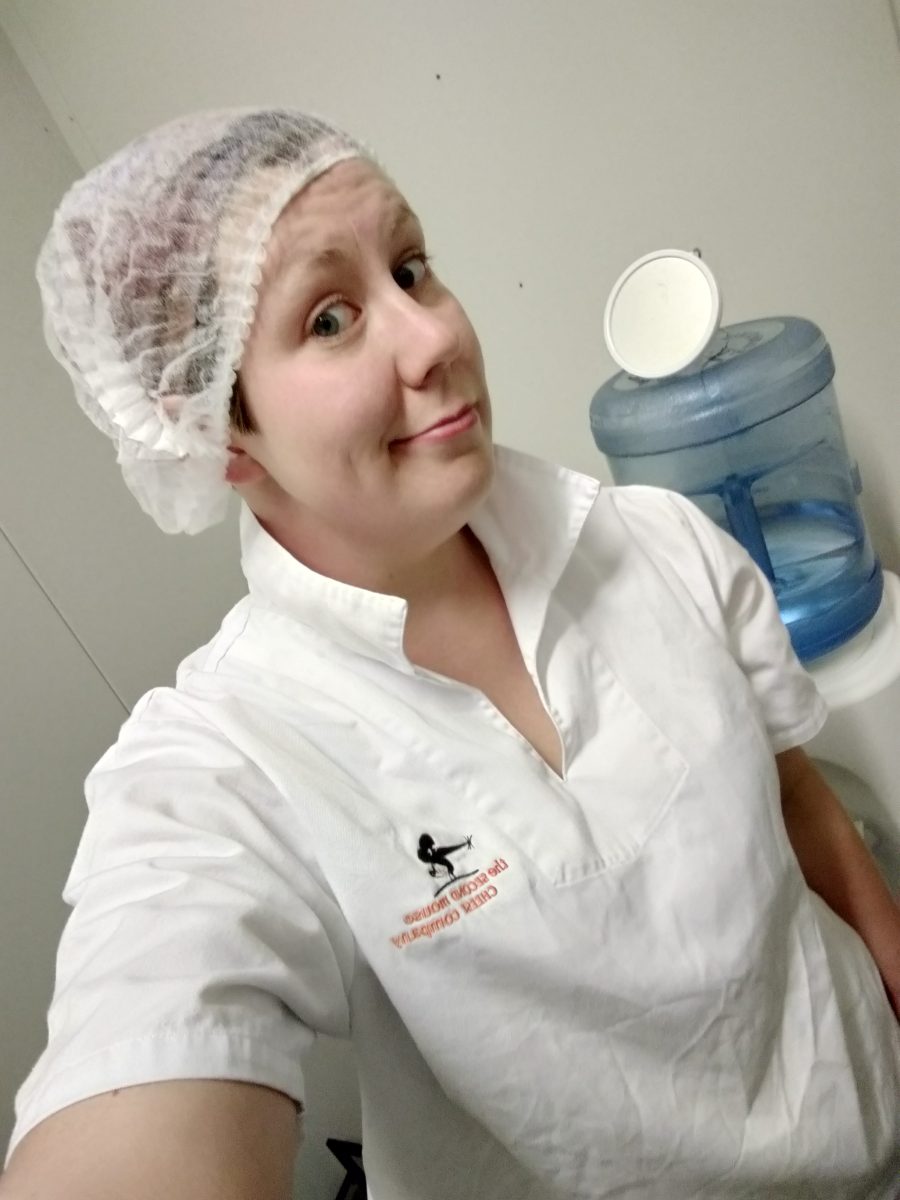
Blessed are the cheese-makers – one of the internships Lucy Ridge has undertaken as part of her passion to produce the best we can eat. Photo: Supplied.
“I know I’m lucky to have growing space in my apartment; not everyone does. And I might even take on a little extra space, with a few clandestine herbs planted around the complex, but no one seems to mind,” she jokes.
“I’m also custodian of the compost bin, keeping everything well baked. I’ve even been known to pull something out of there and put it back in the fridge if necessary.
“The thing is that people now have the capacity to do this, to grow their own, what they eat, plant a garden they know they can harvest.
“That’s what this is all about.”
AFSA crowd-funding for Eating Democracy has officially ended, but you can still contribute to the Eating Democracy campaign.
The book will be launched by ABC TV’s gardening guru Costa Georgiadis at the SAGE Gardens in Moruya on 21 October. Tickets are available from eventbrite.












